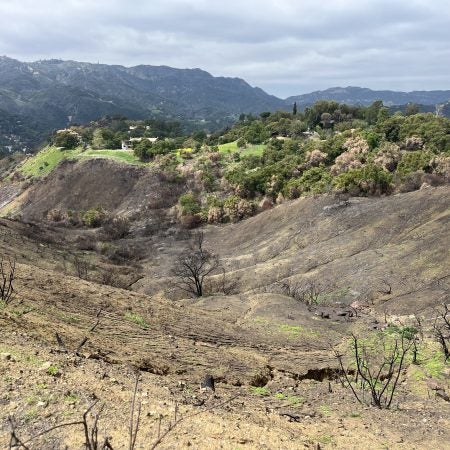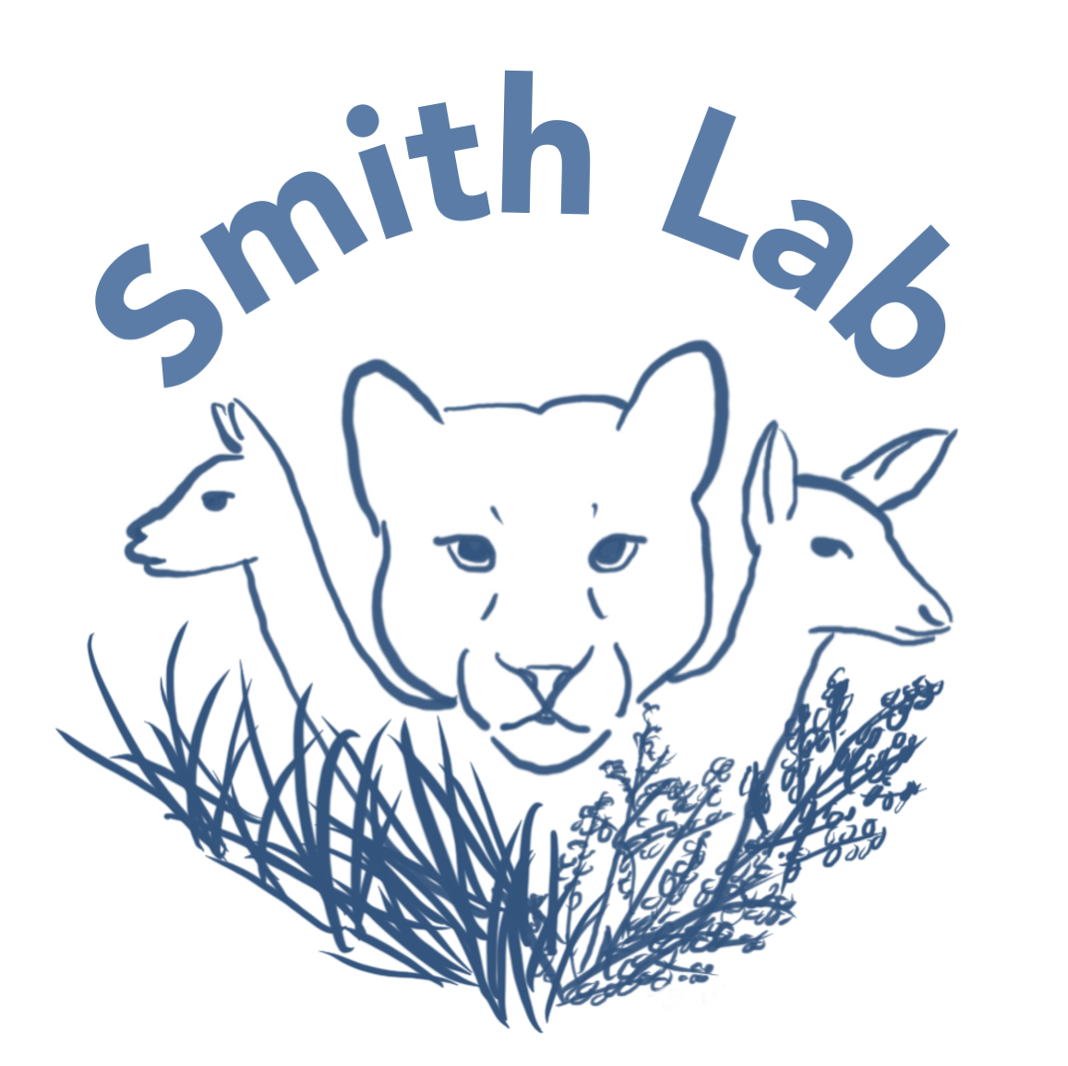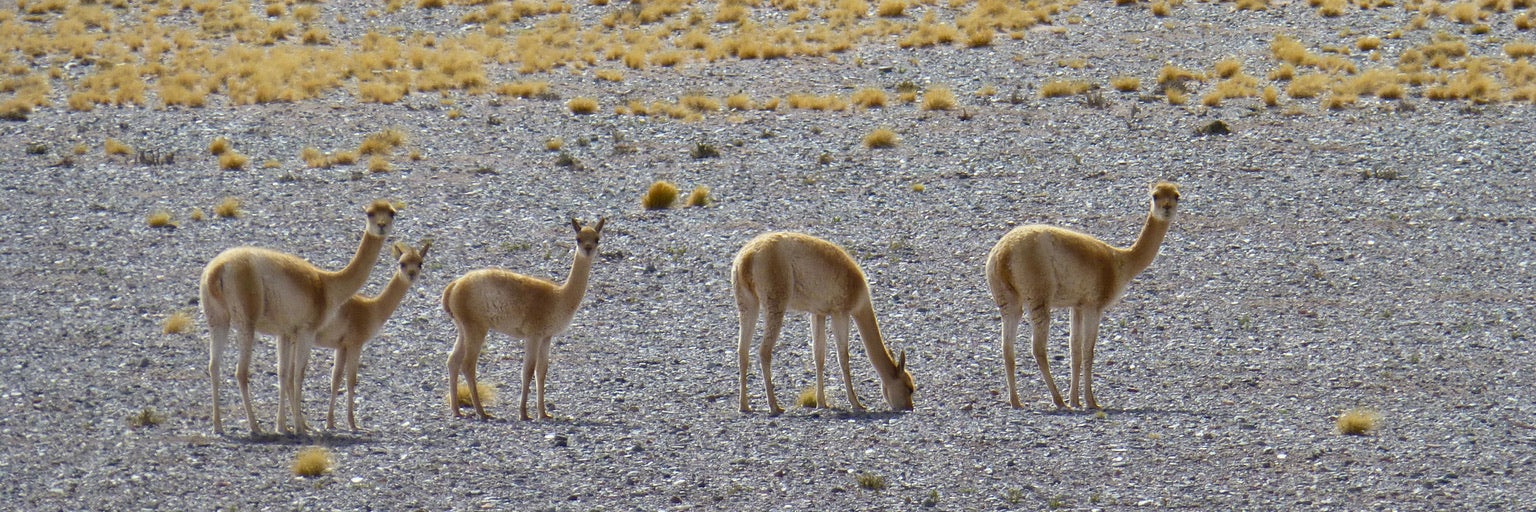Research Themes
Feedbacks between multiple stressors and animal behavior
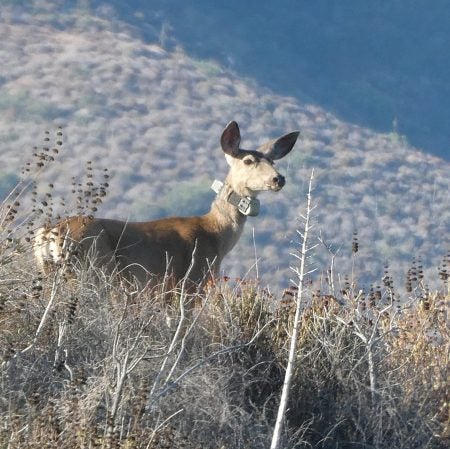
Under global change, many animals are challenged with navigating novel conditions. Interacting stressors, such as expanding human footprint, modified fire regimes, changes in population demographics, and increasing climate extremes simultaneously drive behavior of animal populations. We examine how multiple stressors affect animal behavior and the subsequent impacts on their interactions with humans and other species.
- The influence of fire and drought on human-wildlife conflict across California. Lead: Dr. Kendall Calhoun. Collaborating agency: CDFW
- Intersections of fire and predation risk in driving mule deer movement and foraging behavior. Lead: Ellie Bolas. Collaborating agencies: NPS, CDFW
- Puma diet, movement behavior, and spatial ecology in a highly human-dominated landscape. Lead: Ellie Bolas. Collaborating agency: NPS
- The impacts of climate and land use change on plasticity of mule deer migrations in the Sierra Nevada. Lead: Emily Leonhardt. Collaborating agency: CDFW
Ecological and social dynamics of wildlife recovery
Following centuries of defaunation across the globe, conservation efforts are leading to wildlife recovery in many regions. Such recoveries do not necessarily restore historic conditions, but instead may precipitate novel social and ecological dynamics. We explore the social and ecological implications for wildlife recovery and conditions that challenge successful wildlife restoration.
- Rancher perceptions of carnivore-livestock conflict risk in a Patagonian working landscape. Lead: Olivia Feldman. Collaborating organization: Fundación Rewilding Argentina
- Puma dispersal dynamics in a mosaic of protected areas and working lands in Patagonia, Argentina. Lead: Megan McDaniels. Collaborating organization: Fundación Rewilding Argentina
- Spatial ecology of maned wolves in a rewilded preserve in Argentina. Lead: Megan McDaniels. Collaborating organization: Fundación Rewilding Argentina
- Ecosystem restructuring and behavioral modifications following a disease-induced population collapse. Leads: Megan McDaniels. Collaborating agency: Consejo Nacional de Investigaciones Científicas y Técnicas Argentina (CONICET)
- Disease implications of tropic cascades from recovering grey wolves in California. Lead: Ishana Shukla. Collaborating agency: CDFW
- Global predictors of indirect effects of carnivore recovery. Lead: Ishana Shukla
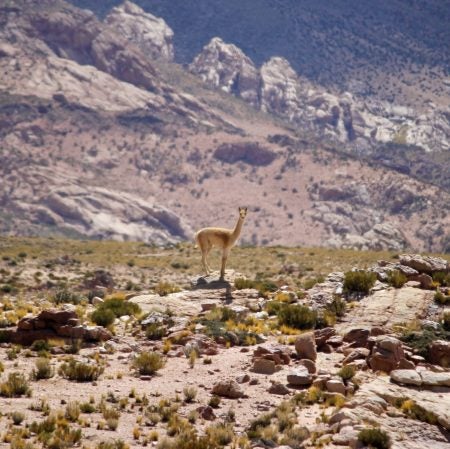
Impacts of environmental heterogeneity on risk effects
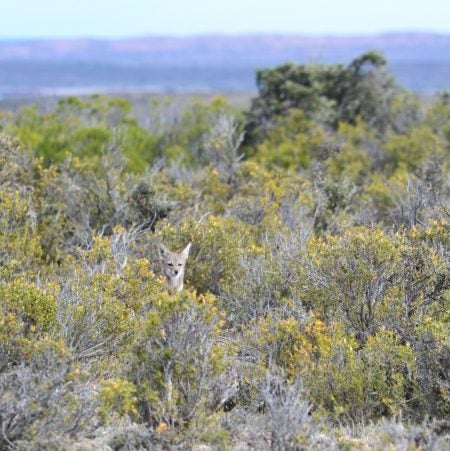
Risk effects, or the manifestations of risk-induced phenotypic change in wildlife, are inherently linked to heterogeneity in risk and reward landscapes. We investigate how patterns of environmental heterogeneity alter the movement decisions made by animals and the consequences of these decisions on species interactions.
- Seasonality as a driver of heterogeneity in risk-reward tradeoffs for mule deer. Lead: Ellie Bolas. Collaborating agency: NPS, CDFW
- Small carnivore diet and space use in a Patagonian working landscape. Lead: Olivia Feldman. Collaborating organization: Fundación Rewilding Argentina, Consejo Nacional de Investigaciones Científicas y Técnicas Argentina (CONICET)
- How a penguin-driven nutrient subsidy alters risk-reward tradeoffs for guanacos. Lead: Megan McDaniels. Collaborating organization: Fundación Rewilding Argentina
- Latrines as ectoparasite hotspots for a social camelid in the Andes. Lead: Megan McDaniels. Collaborating organizations: Consejo Nacional de Investigaciones Científicas y Técnicas Argentina (CONICET)
Synthetic work on species interactions, risk effects, and conservation behavior
A powerful complement to empirical research is synthetic work that seeks to more broadly describe the rules of life and apply them to conservation challenges. We seek to advance the application of theory to management, improve the utility of novel technologies, and bridge concepts across fields to improve inference in ecology.
- Evidence for human-induced non-consumptive effects and trait mediated indirect effects.
- The interaction between fire and other anthropogenic stressors on predator-prey interactions. Lead: Ellie Bolas
- Technological advancements in movement, behavioral, and trophic ecology and applications to management.
- University of Sydney - UC Davis collaboration: The “necrobiome” as a research and management tool to predict disease transmission in animal communities.
